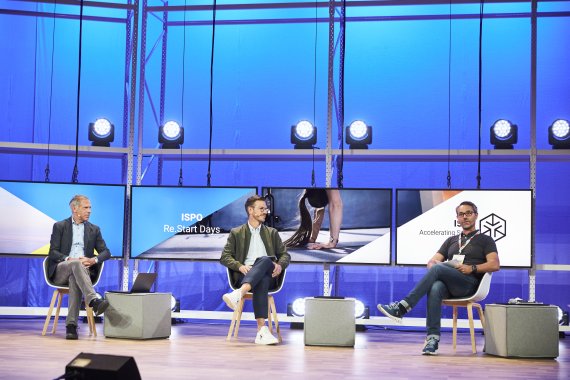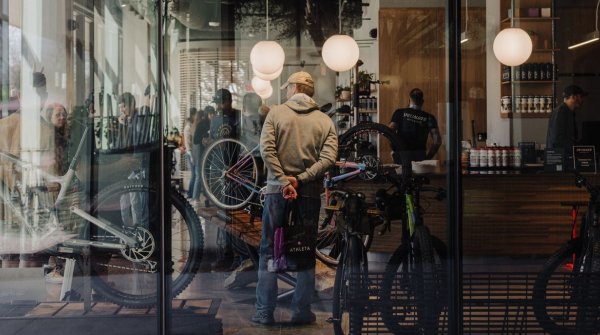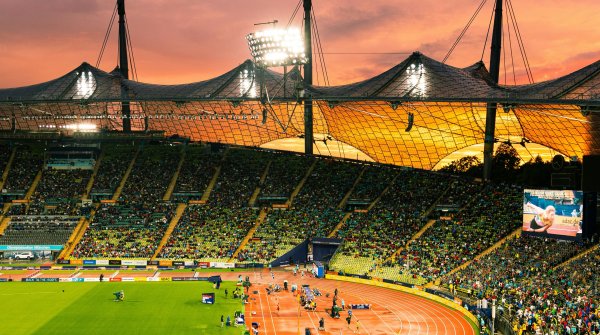
The major sports retailer associations Intersport and Sport 2000 have held virtual trade fairs for their members for the first time in recent weeks. A true revolution for the giants, who in the past were considered rather immobile and unflexible. However, the online shows were only the beginning of the changes that will be taking place in the sports industry in the near future. The industry leaders were conviced of this in a panel discussion at the ISPO Re.Start Days.
"We must go into a permanent evolution mode. Coronavirus acts as a kind of accelerant. Our business models are getting older from year to year, we can't survive with them in the future. We must embrace the changes in consumer behaviour, otherwise we will become irrelevant," explains Christoph Engl, CEO of the Oberalp Group. In concrete terms, this means not only that more and more customers are turning to both offline and online channels, which is why an omnichannel approach is needed.
But also that retailers are increasingly demanding that brands adapt their product cycles to the real wishes of consumers. "We need to enter into a discussion with the industry on this issue. We can't have all the winter clothes in the shop in August or September when the consumer starts looking for them in mid-November at the earliest. The customers want to buy the things when they need them and not when the brands want to supply the shops," says Intersport board member Mathias Boenke in plain language.
Another concern of sports retailers is that brands have to reduce the sheer endless variety of products in certain areas. Boenke cited the example of soccer shoes, where new models are constantly being launched on the market: "This is too confusing for the customer. In addition, the topic of social responsibility is playing an increasingly important role for consumers. Brands are no longer judged by their products alone, but by the attitude they take towards important social problems such as sustainability, climate change or racism.
"More and more people want to know what we actually stand for. Brands can also express this through their products. In turn, customers form a community by buying these goods and thus express their opinions," believes Christoph Engl. Sports retailers are also feeling the growing interest of their customers in topics such as sustainability or social responsibility when shopping. For this very reason, personal advice remains extremely important despite the accelerated digitalization caused by the pandemic. According to Boenke, Intersport, for example, recorded a doubling of sales compared to the previous year after the stores reopened in May.
"Our customers want to continue to meet other people and they want the products explained to them. Human relationships remain extremely important," says Boenke. Mathias Hupach, CEO of Sport 2000 at EU level, shares the same opinion: "We need to listen more to the consumer. They want online, but they also want offline. We need local experts in our stores to form communities."
What exactly the sports industry will look like in the future, according to Corona, is currently unclear even for the managers of the industry. Christoph Engl: "Long term plans do not make sense. We have to look from week to week in the current situation and constantly develop ourselves further."
 Sports BusinessThe future of the bike industry: 6 innovative bike stores
Sports BusinessThe future of the bike industry: 6 innovative bike stores
- ISPO awards
- Mountain sports
- Bike
- Design
- Retail
- Fitness
- Health
- ISPO Job Market
- ISPO Munich
- ISPO Shanghai
- Running
- Brands
- Sustainability
- Olympia
- OutDoor
- Promotion
- Sports Business
- ISPO Textrends
- Triathlon
- Water sports
- Winter sports
- eSports
- SportsTech
- OutDoor by ISPO
- Heroes
- Transformation
- Sport Fashion
- Urban Culture
- Challenges of a CEO
- Trade fairs
- Sports
- Find the Balance
- Product reviews
- Newsletter Exclusive Area
- Magazine




